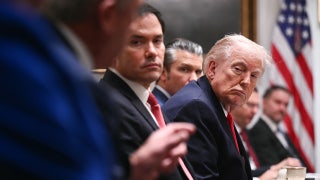To keep health care reform affordable, Congress is depending on young, healthy people to buy insurance -- even threatening fines for those who don't.
Without them -- about 18 million uninsured -- analysts fear the cost of insurance for everyone else will go up.
"We want a system that encourages everyone to have health insurance, and its younger, healthier folks over time help bring down the costs for everybody," said Sandy Praeger, Kansas insurance commissioner.
That's because the health care reform bills in Congress require insurance companies to cover pre-existing conditions and prohibit them from charging sick people any more than others.
That would force up insurance rates unless healthy young people buy insurance and in effect dilute the impact of older, less healthy people.
But now both bills in Congress would change how much insurance companies can charge people based on their age in ways that may undermine the whole reform effort.
"In most states, there actually isn't a limit on how much older people can be charged vs. younger people," said Anne Kim, director of Third Way Economics. "So in some states, older individuals pay six or seven times in premiums what younger people do."
But the Senate would take that down to 3-1. The House would make it 2-1.
That means older people will pay less but young people will pay more.
"If you limit the amount premiums can vary based on a person's age, that can result in premiums increasing by 50 or 60 percent for workers under the age of 30," said Robert Zirkelbach, a spokesman for America's Health Insurance Plans.
In fact, a study by the Urban Institute found that going to a 2-1 age rating would push up premium costs for the youngest adults by almost $1,100 to just under $3,000 dollars a year.
Many young people won't buy insurance at current rates, much less higher ones.
"In order to get young people, the young healthy folks, into the system, premiums have got to be as affordable as possible for them, not more expensive," Kim said.












































